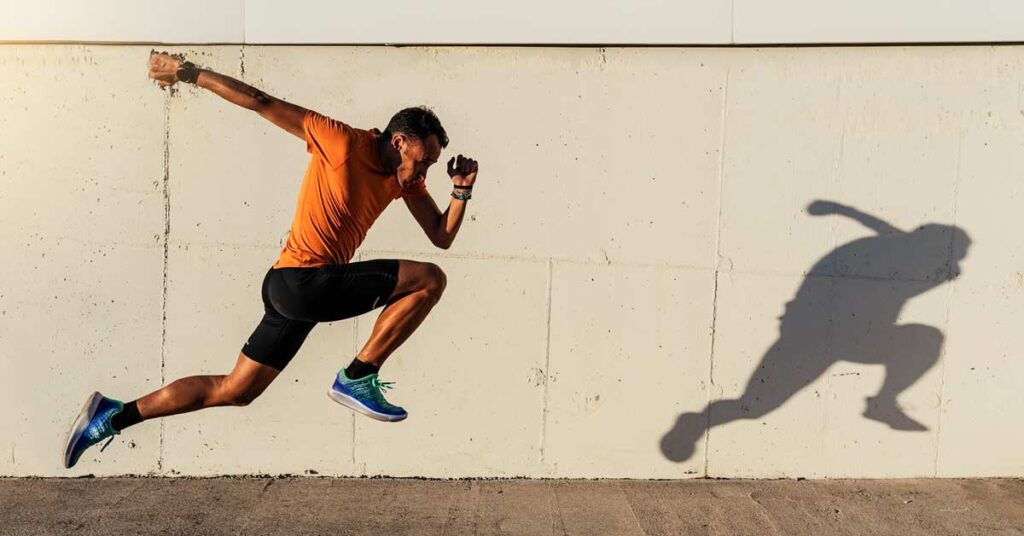If you’re pursuing a career with the Federal Bureau of Investigation (FBI) as a Special Agent, you must be physically and mentally prepared for one of the most competitive and demanding roles in federal law enforcement.
While your academic, investigative, and psychological skills are important, your physical readiness is equally critical. That’s where the FBI Physical Fitness Test (PFT) comes in. Designed to simulate the physical demands of field work, the PFT is a rigorous benchmark every candidate must pass.
This comprehensive article will walk you through everything you need to know to prepare, train, and pass the FBI PFT—from warm-ups to workout cycles to mental strategy.
🧾 Understanding the FBI PFT: What You’re Up Against
The FBI PFT is not your average gym class fitness test. It’s a militaristic-style battery of exercises that demand endurance, strength, speed, and grit.
✅ The 4 (or 5) Test Components:
- Sit-Ups – Maximum reps in 1 minute (abdominal endurance)
- 300-Meter Sprint – Timed (anaerobic capacity and power)
- Push-Ups – Max reps with no time limit (upper body endurance)
- 1.5-Mile Run – Timed (cardiovascular endurance)
- Pull-Ups (optional for Special Agent applicants, required for Tactical Recruitment Candidates)
🎯 Scoring System:
Each event is scored from -2 to +10, depending on performance. To pass:
- You must score at least 1 point on each event
- Your total score must be 12 or more
Failing just one component—regardless of your total score—results in disqualification.
🩺 Why the PFT Matters

This test isn’t just about raw fitness. The FBI uses it to evaluate your discipline, resilience, and ability to perform under stress. As a Special Agent, you may chase suspects, climb stairs under pressure, or respond to emergencies. The PFT ensures that you’re physically ready to meet those challenges.
📊 FBI PFT Performance Benchmarks (Male & Female)
Here’s a simplified table of minimum passing metrics (for a 1-point score):
| Event | Male (1 pt) | Female (1 pt) |
| Sit-Ups (1 min) | 38 | 35 |
| 300-Meter Sprint | ≤ 52.4 seconds | ≤ 64.9 seconds |
| Push-Ups | 30 | 14 |
| 1.5-Mile Run | ≤ 12:24 minutes | ≤ 14:24 minutes |
Note: For competitive applicants, aim higher than minimums—scores of 5+ in each event improve your selection odds.
🏋️ 12-Week Training Blueprint to Crush the FBI PFT
🔹 Phase 1: Weeks 1–4 – Build the Base
Goal: Improve cardiovascular fitness, core stability, and bodyweight strength
- Sit-ups: 4x 60-sec intervals, plank holds, leg raises
- Push-ups: 4 sets to near failure, incline push-ups, shoulder taps
- Sprints: 6x100m sprints, hill sprints
- Run: 1-mile jogs, increasing by 0.25 miles weekly
- Strength Days: Bodyweight squats, lunges, assisted pull-ups
Tip: Focus on form and tempo—avoid burnout in the early weeks.
🔹 Phase 2: Weeks 5–8 – Strengthen & Stabilize
Goal: Increase max reps, improve short-burst speed, build aerobic capacity
- Sit-ups: Add resistance (medicine ball sit-ups, decline sit-ups)
- Push-ups: Pyramid sets, clap push-ups, diamond push-ups
- Sprint Training: 200m sprints, 300m ladder runs
- Distance Running: 1.5 miles → 2 miles, with goal pace runs
- Add Weights: Resistance band work, weighted vest (light)
Recovery Tools: Foam rolling, active recovery, magnesium-rich diet
🔹 Phase 3: Weeks 9–12 – Simulate the Test
Goal: Replicate the full PFT in training conditions
- Weekly PFT Simulations: Practice the full test with timed transitions
- Speed Work: Add tempo runs at 85–95% effort
- Max Sets: Push-ups and sit-ups with minimal rest
- Cooldown Protocol: Stretching, ice baths, sleep hygiene
Mental Edge: Practice positive visualization and mental rehearsal before each simulation.
🥗 Nutrition & Hydration Tips for FBI Training

- Protein Intake: 0.8–1g per pound of body weight for muscle recovery
- Hydration: At least 3L/day—dehydration decreases sprint and endurance performance
- Pre-Test Meal: Complex carbs + light protein 90 minutes before training
- Supplements (Optional): Creatine (for sprint/power), Electrolytes, Omega-3s
💭 Mindset & Motivation: Train Like an Agent
Preparing for the PFT is not just physical—it’s psychological warfare against laziness, excuses, and fear of failure.
🧠 Mental Strategies:
- Track Progress: Use journals or apps to log every workout and improvement
- Visualize Success: Picture yourself passing each event—this boosts focus
- Reward Milestones: Celebrate improvements with small incentives
- Train With Purpose: Remember why you’re pursuing this career
🧪 What to Expect on Test Day
- Wear athletic gear (no fancy compression gear needed)
- Bring water, towel, and ID
- You’ll perform the events in this exact order:
- Sit-Ups
- 300-Meter Sprint
- Push-Ups
- 1.5-Mile Run
- Sit-Ups
- Rest Periods: 5 minutes between sit-ups and sprint, 10 minutes after sprint, 5 minutes before the final run
Pro Tip: Stay warm and keep your body loose between events.
📱 Digital Tools for Preparation
Here are a few apps and tools to help you on your journey:
- FBI PFT App (official) – Simulate test, track score
- Strava / Nike Run Club – Running and sprint tracking
- MyFitnessPal – Nutrition tracking
- Strong / JEFIT – Strength training logging
Frequently Asked Questions
1. How hard is the FBI PFT?
It’s challenging, but passable with smart and consistent training. Most candidates fail due to poor preparation or underestimating sprint/run components.
2. Can I train while working full time?
Yes. Many successful candidates train early in the morning or after work using structured 45–60 minute workouts.
3. Do I need gym access?
Not necessarily. You can complete most training outdoors and with bodyweight, but pull-up bars and tracks help.
4. What’s the average pass rate?
Exact pass rates aren’t public, but a large percentage of first-time test takers fail—especially the 1.5-mile run. Training is crucial.
5. Should I train for pull-ups even if I’m not applying for TRP?
Yes—pull-ups improve upper-body strength and prepare you for academy challenges.
6. Can older applicants pass the PFT?
Absolutely. Many applicants in their 30s and even early 40s succeed with targeted preparation.
7. What happens after I pass the PFT?
You advance in the hiring process, which includes background checks, interviews, and the FBI Academy.
8. How often can I retake the PFT?
You’ll typically get multiple chances, but too many failed attempts may impact your candidacy.
Final Words: Prepare Like Your Career Depends on It—Because It Does
Passing the FBI Physical Fitness Test is one of the most significant milestones on your path to becoming a Special Agent. It’s not just about physical ability—it’s about proving your commitment, mental toughness, and ability to perform under pressure. Use this guide as your blueprint. With structure, discipline, and resilience, you won’t just pass the PFT—you’ll crush it.